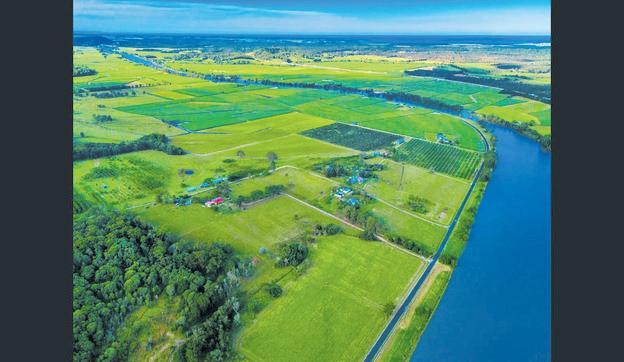
2 minute read
Nearly $1.4M in Grants Awarded to Strengthen Rural Communities Across
Australia
obsession humans have for being amused, albeit simply pleased.
As if to somehow counter this crude inclination to outright overlook the sublime that plays out under our noses, the Nobel Prize-winning poet Wislawa Szymborska once admitted, “I misbehaved in the cosmos yesterday. I lived around the clock without questions, without surprise. I performed daily tasks as if only that were required.” Which is one of the most subtly scathing requests for each of us to wake up, and start appreciating the unfathomable miracle that is existence. Relatedly, Doris Lessing once beautifully confessed, “I don’t understand people being bored. I find life so enormously exciting all the time. I enjoy everything enormously if only because life is so short. What have I gotanother forty years of this extraordinary life - if I’m lucky? But most people live as if they have a weight put on them.”
And a considerable amount of this ‘weight’ gets applied through the meaninglessness of the amusements that we expose ourselves to.
If we are not careful, society runs the risk of situating the abjectly ephemeral at the very centre of its being. Or as W. H. Auden once foresaw many decades ago, “What the mass media offers is not popular art, but entertainment which is intended to be consumed like food, forgotten, and replaced by a new dish.” And as such, we should all know by now, the risks that ‘fast foods’ directly pose to our overall health and constitution.
In a signifcant boost for rural development, the Foundation for Rural & Regional Renewal (FRRR) has announced that nearly $1.4 million in grants have been distributed to 129 community groups across remote, rural, and regional Australia. These grants, part of the FRRR’s Strengthening Rural Communities (SRC) program, aim to support a variety of local initiatives designed to enhance community cohesion and resilience.
The funding was allocated across three streams: community enhancements like upgrades to local facilities; COVID-19 recovery projects such as the creation of cultural precincts; and disaster preparedness and recovery initiatives, which include programs tailored for traumaresponsive community healing.
This round of SRC funding saw an unprecedented demand with 450 applications submitted, requesting over $4.5 million in support for projects collectively valued at more than $19 million.
In response to the high demand, FRRR has streamlined its application process, signifcantly reducing the time from application to award to just nine weeks.
Jill Karena, FRRR’s Place Portfolio Lead, highlighted the shifting landscape of funding in rural areas, noting a decrease in traditional government and local business support.
“The SRC program’s fexibility and yearround availability are crucial, especially as communities transition from immediate disaster response to long-term recovery,” Karena explained. “This round we observed a notable increase in applications for community events funding and initiatives aimed at boosting local economies through tourism and other activities.”
Despite the generous grant allocations, there remains a signifcant unmet need within these communities. An additional 85 projects were ready for funding, seeking over $900,000 which could not be met due to limited resources.
This underscores the critical role that small grants play in sustaining rural community groups and why FRRR is actively seeking new partners to expand its funding capabilities.
“Groups have expressed the importance of having access to timely and secure funding to support not just immediate needs but also medium and long-term goals,” said Ms. Karena. “These projects foster a strong sense of place and identity, and they require continuous support. We hope to engage more collaborative funders to join us in nurturing the heart of Australia’s rural sectors.”

A complete list of the grant recipients is available on the FRRR’s website.
The SRC program is supported by a variety of donors, from private individuals to larger foundations, all listed on the FRRR’s website. Community groups and local not-for-profts are encouraged to review the program guidelines and consider applying for future rounds of funding.
More information about the SRC program can be found at www.frrr.org. au/src.





*
*
*












